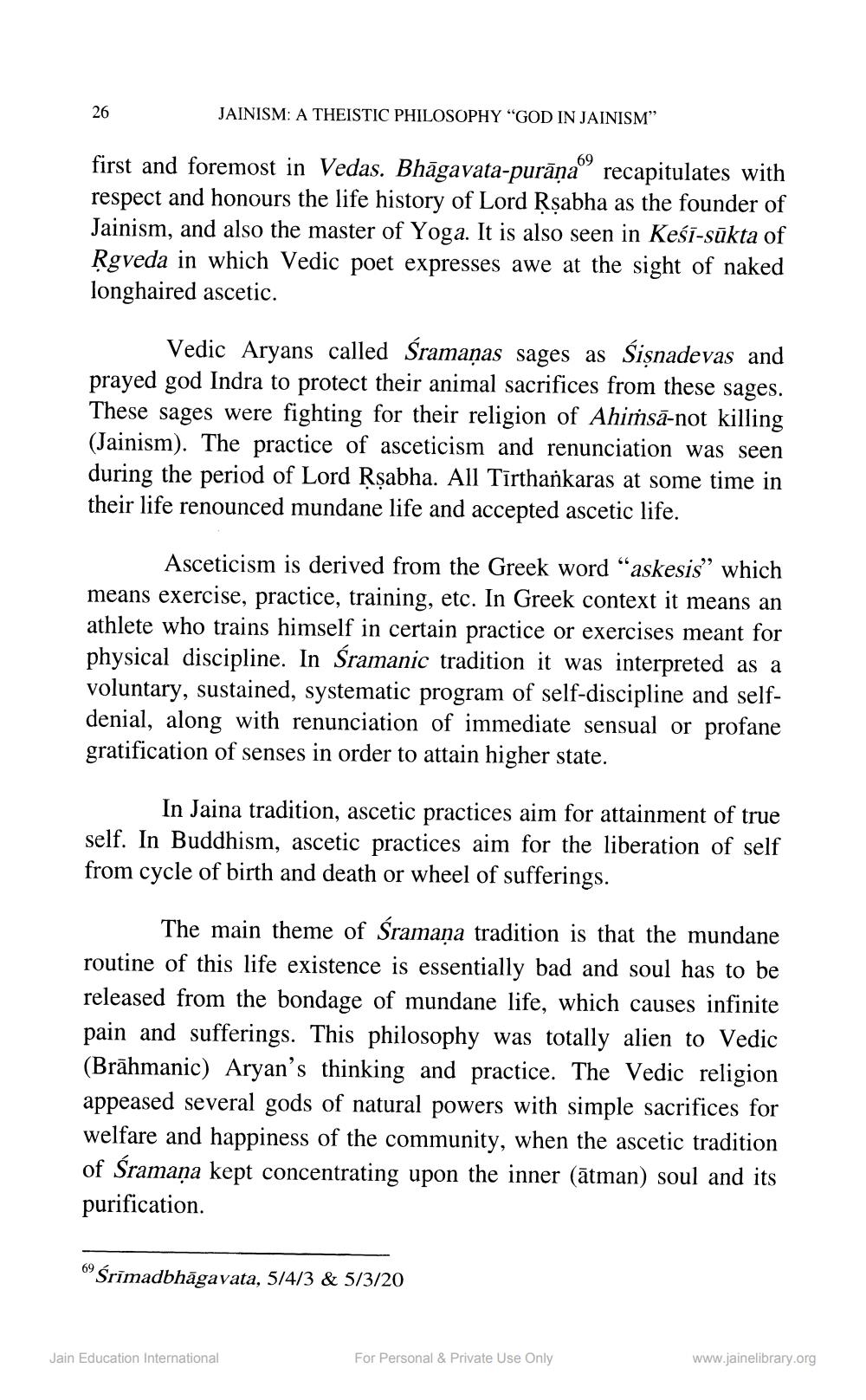________________
JAINISM: A THEISTIC PHILOSOPHY "GOD IN JAINISM"
first and foremost in Vedas. Bhāgavata-purāṇa" recapitulates with respect and honours the life history of Lord Rṣabha as the founder of Jainism, and also the master of Yoga. It is also seen in Keśī-sūkta of Rgveda in which Vedic poet expresses awe at the sight of naked longhaired ascetic.
26
Vedic Aryans called Śramanas sages as Sişnadevas and prayed god Indra to protect their animal sacrifices from these sages. These sages were fighting for their religion of Ahimsa-not killing (Jainism). The practice of asceticism and renunciation was seen during the period of Lord Rṣabha. All Tīrthankaras at some time in their life renounced mundane life and accepted ascetic life.
Asceticism is derived from the Greek word "askesis" which means exercise, practice, training, etc. In Greek context it means an athlete who trains himself in certain practice or exercises meant for physical discipline. In Śramanic tradition it was interpreted as a voluntary, sustained, systematic program of self-discipline and selfdenial, along with renunciation of immediate sensual or profane gratification of senses in order to attain higher state.
In Jaina tradition, ascetic practices aim for attainment of true self. In Buddhism, ascetic practices aim for the liberation of self from cycle of birth and death or wheel of sufferings.
69
The main theme of Śramana tradition is that the mundane routine of this life existence is essentially bad and soul has to be released from the bondage of mundane life, which causes infinite pain and sufferings. This philosophy was totally alien to Vedic (Brahmanic) Aryan's thinking and practice. The Vedic religion appeased several gods of natural powers with simple sacrifices for welfare and happiness of the community, when the ascetic tradition of Śramana kept concentrating upon the inner (atman) soul and its purification.
69
Śrīmadbhāgavata, 5/4/3 & 5/3/20
Jain Education International
For Personal & Private Use Only
www.jainelibrary.org




